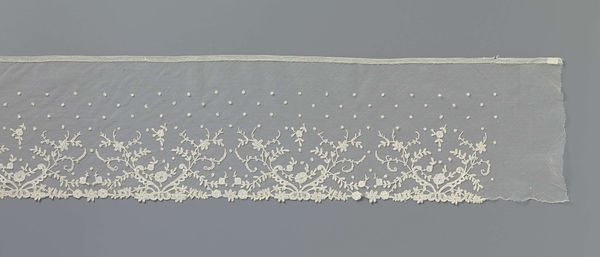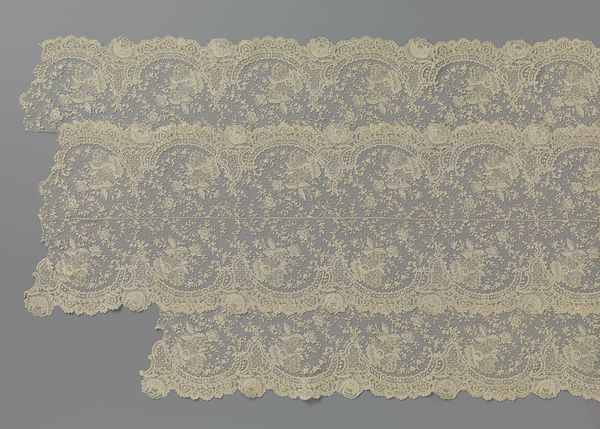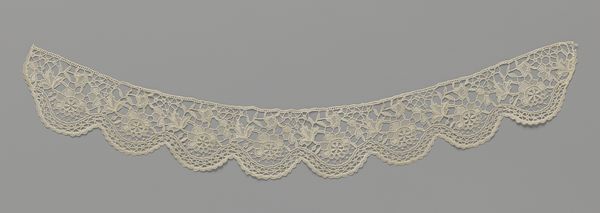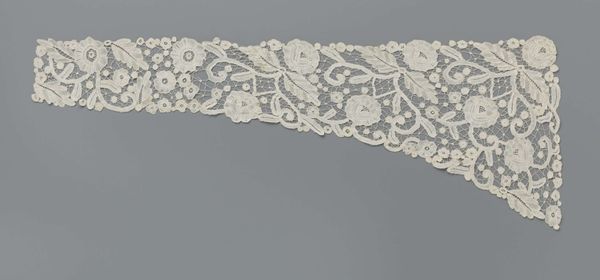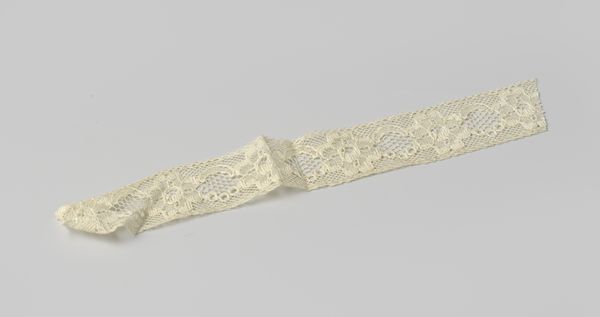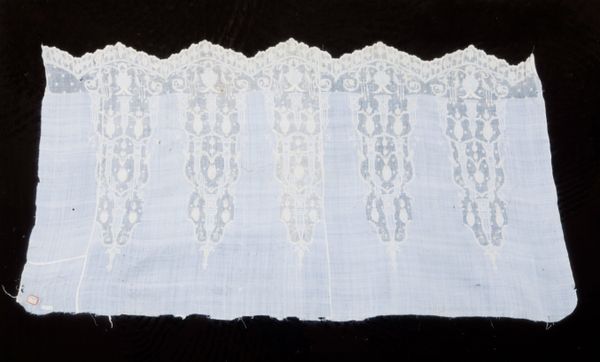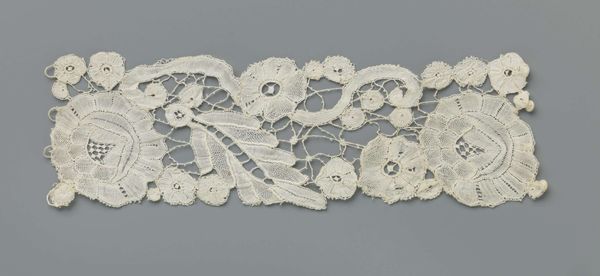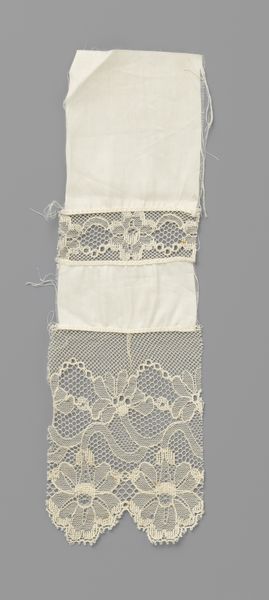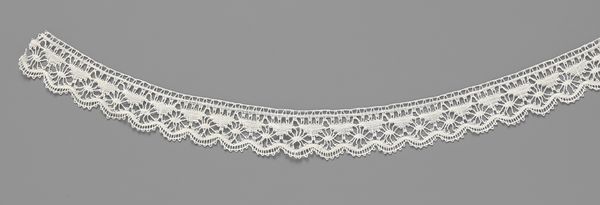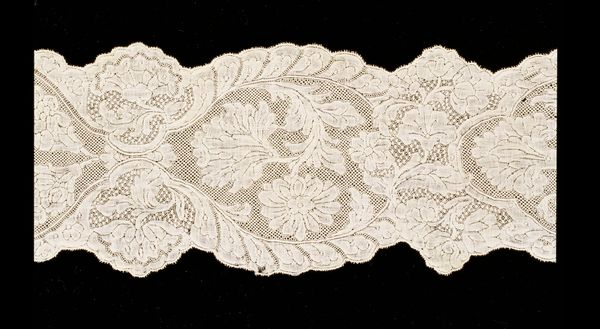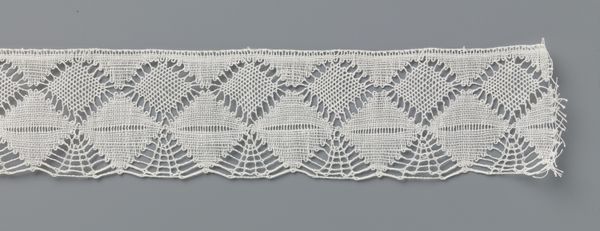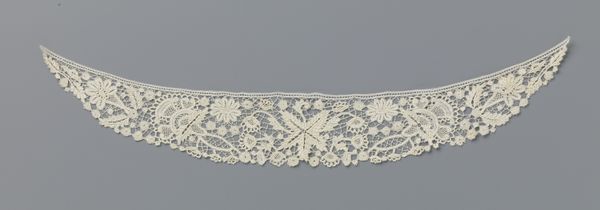
weaving, textile
#
weaving
#
textile
#
fashion and textile design
#
text
#
hand-embroidered
#
pattern design
#
fabric design
#
15_18th-century
#
france
#
men
#
costume
#
line
#
regular pattern
#
pattern repetition
#
textile design
#
decorative-art
#
imprinted textile
#
layered pattern
#
dress
#
rococo
#
arm
#
clothing design
Dimensions: a: 88.9 × 15.9 cm (35 × 6 1/4 in.) b: 88.9 × 15.9 cm (35 × 6 1/4 in.)
Copyright: Public Domain
Curator: At first glance, these sleeve ruffles are remarkably delicate. A certain refinement of another era permeates these objects. Editor: Precisely. What we're viewing is a pair of sleeve ruffles, likely French, dating to around the mid-18th century. They’re currently held in the collection of the Art Institute of Chicago. These pieces are composed of textile and weaving. Curator: Weaving a story of power and social expectation. These ruffles immediately signal the Rococo era and the performative aspects of courtly life. These are more than embellishments; they are a declaration of status, literally an extension of the body. Editor: Yes, fashion as a political tool, right? During this period, sumptuary laws, although fading, still held echoes of social hierarchy, subtly dictating what classes could wear what materials and styles. This type of accessory was predominantly worn by men. Curator: Think of the symbols stitched into each motif, resonating across generations, representing lineage and personal virtues that bind individuals to collective stories. They're practically hand-embroidered hieroglyphs worn on the sleeve, in that respect! Editor: Quite literally. Considering how hand-made lace and other fine textiles like this were produced reveals so much about 18th century labor practices. Women predominantly produced such delicate and demanding needlework—it's work whose historical value is vastly underrated! Curator: The symmetry suggests a certain level of control and order in the era’s visual culture, but there’s a deceptive playfulness too in the repetition of the patterns and the scalloped edges, softening any severe tone. A way for a gentleman to play the peacock in the court, if he so wished. Editor: It is truly fascinating to observe how even an ostensibly small object can shed light on intricate social and political systems of its time. Thank you. Curator: My pleasure. Examining seemingly mundane things often grants the deepest insights into past realities, doesn't it?
Comments
No comments
Be the first to comment and join the conversation on the ultimate creative platform.
